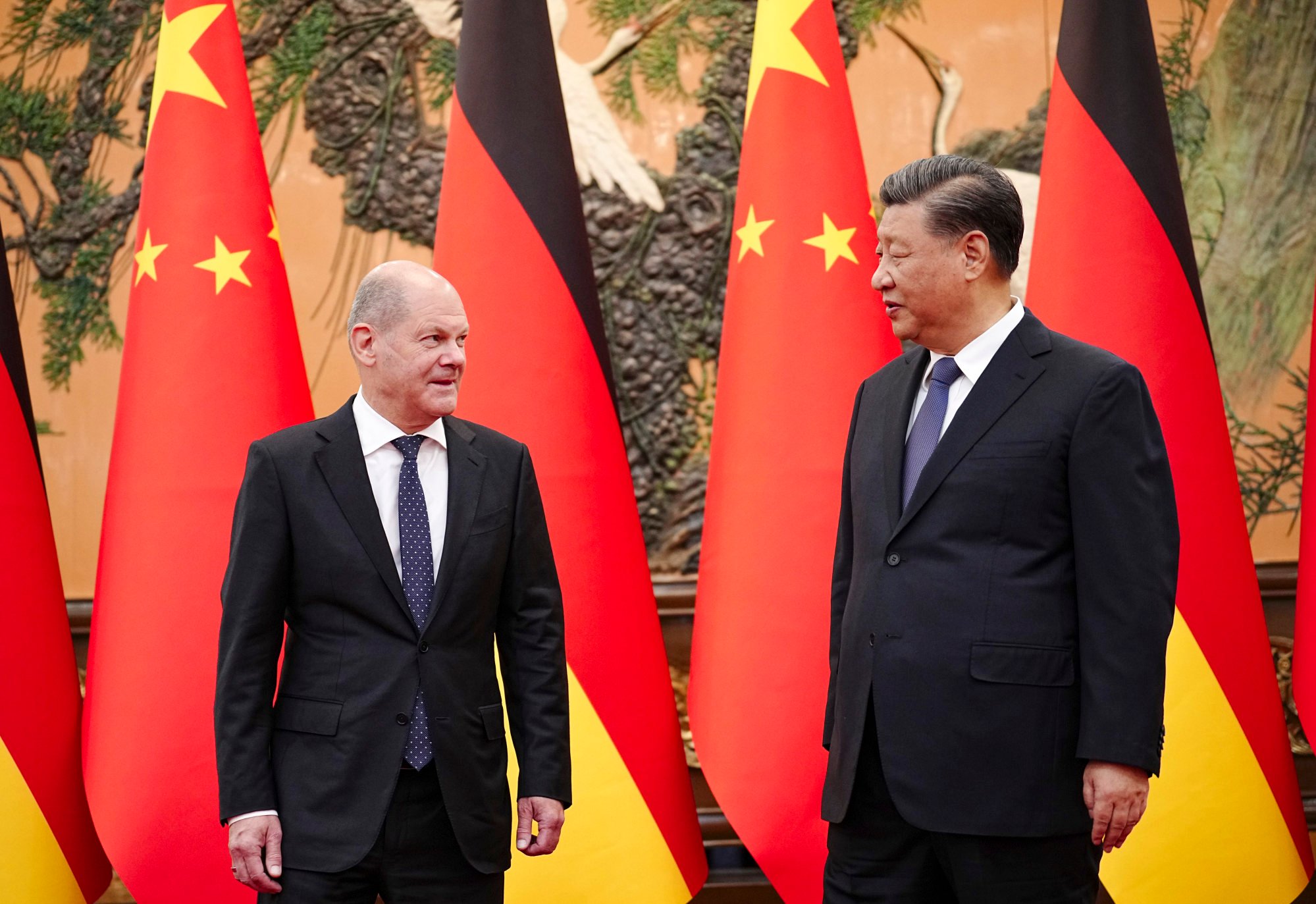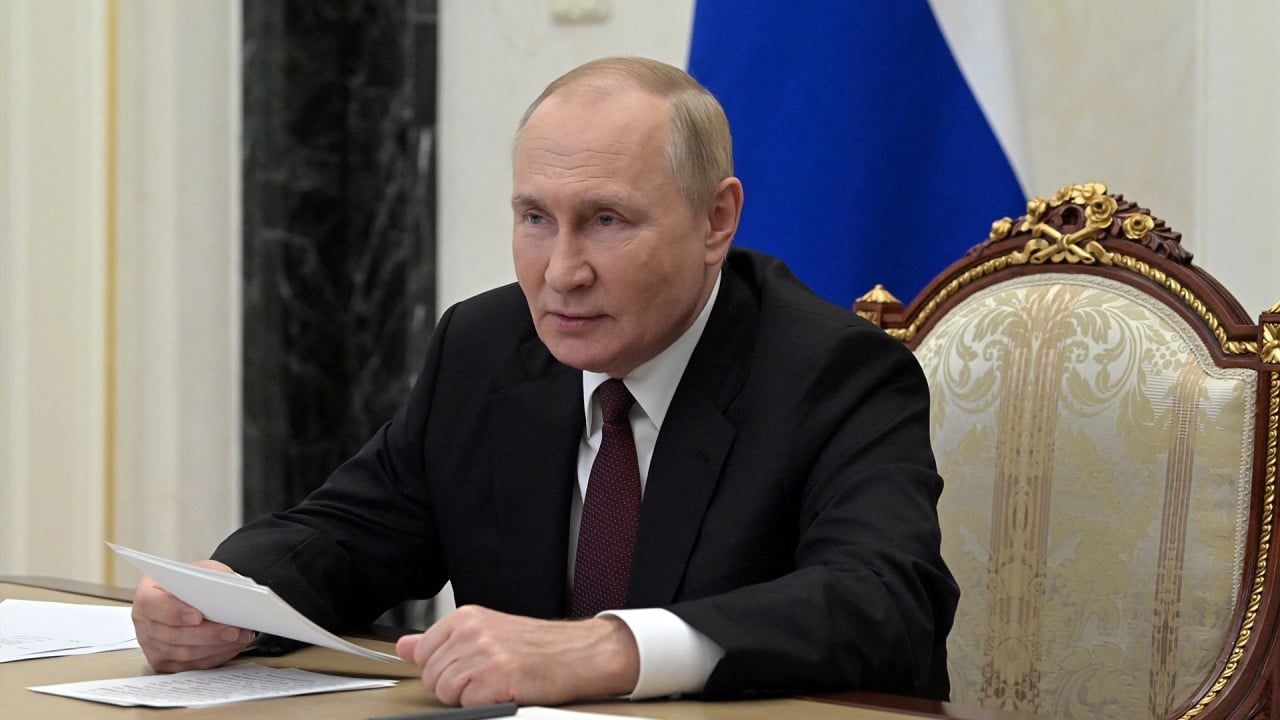
No nuclear weapons over Ukraine, Chinese President Xi Jinping says, in clear message to Russia
- ‘Nuclear wars must not be fought, in order to prevent a nuclear crisis in Eurasia,’ Xi says during meeting with German chancellor Olaf Scholz
- President Vladimir Putin has vowed to use ‘all weapon systems available’ if Russian territorial integrity is threatened
Xinhua’s readout of the meeting did not target any country for criticism nor mention Russia.

“A nuclear war cannot be won and must never be fought”, the five permanent members of the UN Security Council, or the “P5”, had said in their joint statement.
China maintains a stated policy that it will not use nuclear weapons first and not threaten non-nuclear states with those weapons. But Western governments remain concerned because of a lack of transparency over the Chinese nuclear programme.
‘No first use of nuclear weapons at any time’: China vows at UN
Xi also told Scholz that China supported Europe’s important role in pushing for peace talks over Ukraine, and in creating a “balanced, effective and sustainable” European security framework, according to Xinhua.
Western countries supporting Ukraine’s war efforts have been worried about Moscow using nuclear weapons, after President Vladimir Putin said in September that Russia would use “all weapon systems available” if its territorial integrity was threatened.
But last month, Putin denied having any intentions of using nuclear weapons against Ukraine, saying there was no need for this from a political or military standpoint.
Scholz, the first Group of 7 and western European leader to visit China since the Covid-19 pandemic began, said Berlin and Beijing agreed that threatening nuclear attacks was irresponsible and dangerous.
“I have said to President Xi that it’s important for China to exert its influence on Russia – it’s about the principles of the UN Charter that we have all agreed on, and asserting these principles like the sovereignty and territorial integrity of every country. These are important issues for China as well,” Scholz said during a joint press conference with Chinese Premier Li Keqiang on Friday.
In an opinion piece for Politico ahead of his one-day trip, Scholz said China bore a “special responsibility” as a permanent member of the UN Security Council.
Putin says world faces ‘most dangerous decade’, blasts West
China is not known to have given direct military support to Russia or recognised annexed Ukrainian regions as Russian territory. However, it has repeatedly criticised the West for ignoring Moscow’s security concerns and the sanctions they imposed in response to the invasion.
Chinese media have also repeated the Kremlin’s narrative on the war and not described it as an invasion.
“Scholz will see China’s public opposition to the use and threat to use nuclear weapons as a victory,” said Noah Barkin, a China expert at Rhodium Group, a New York-based research firm.

Xi also highlighted to Scholz the need for Germany and China to work together for the global good. “We must work together to ensure global industry and supply chains are stable and prevent interferences to cooperation in global energy, food and finance that will harm global economic recovery and, especially, the economic and financial stability of developing countries,” Xi said, according to Xinhua.
For China, economic development and national security go hand in hand. Xi’s national security doctrine says development can ensure security, while security in turn ensures the continued development of nations.
National security, as China sees it, is not only about the protection of territorial integrity but also ensuring a supply chain remains safe from foreign sanctions and developing self-sufficiency in food, energy and technology.
Additional reporting by Stella Chen


